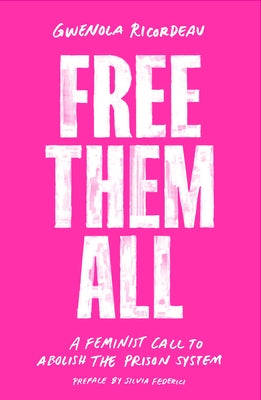Description
An indispensable guide to the feminist case for prison abolition How does the criminal justice system affect women's lives? Do prisons keep women safe? Should feminists rely on policing and the law to achieve women's liberation? The mainstream feminist movement has proposed "locking up the bad men," and called on prisons, the legal system, and the state to protect women from misogynist violence. This carceral approach to feminism, activist and scholar Gwenola Ricordeau argues, does not make women safer: it harms women, including victims of violence, and in particular people of color, poor people, and LGBTQ people. In this scintillating, comprehensive study, Ricordeau draws from two decades as an abolitionist activist and scholar of the penal justice system to describe how the criminal justice system hurts women. Considering the position of survivors of violence, criminalized women, and women with criminalized relatives, Ricordeau charts a new path to emancipation without incarceration. WWith a new foreword by Silvia Federici. Translated from the French by Tom Roberge and Emma Ramadan.
Author: Gwenola Ricordeau
Publisher: Verso
Published: 08/08/2023
Pages: 192
Binding Type: Paperback
Weight: 0.40lbs
Size: 8.30h x 5.60w x 0.50d
ISBN13: 9781839762734
ISBN10: 183976273X
BISAC Categories:
- Political Science | Human Rights
- Social Science | Feminism & Feminist Theory
- Social Science | Human Geography
Author: Gwenola Ricordeau
Publisher: Verso
Published: 08/08/2023
Pages: 192
Binding Type: Paperback
Weight: 0.40lbs
Size: 8.30h x 5.60w x 0.50d
ISBN13: 9781839762734
ISBN10: 183976273X
BISAC Categories:
- Political Science | Human Rights
- Social Science | Feminism & Feminist Theory
- Social Science | Human Geography
About the Author
Gwenola Ricordeau is an associate professor of Criminal Justice at California State University, Chico. She previously taught in higher education for more than a decade in her native France. As a feminist and a penal abolitionist for more than two decades, Gwenola tries to make her scholarship resonates with her activism and personal experience as a relative of prisoners.

